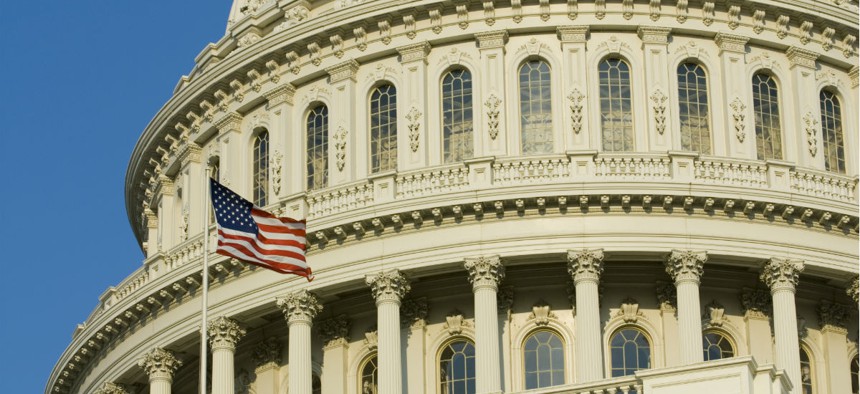Data Coalition Sees Trump Win as a Call for More Open Government
The nonprofit transparency alliance issues an agenda for 2017.
Last week’s election of Donald Trump as president “shows that Americans feel a need to be better connected to a government they may see as remote, complex, overblown and unresponsive,” according to the leader of a major industry and nonprofit alliance promoting federal data transparency.
“Open data can change all that,” Hudson Hollister, executive director of the Data Coalition told Government Executive on release of the group’s 2017 federal, state and market transparency agenda.
The most important priority in the agenda’s section on government management, he said, is to expand the 2014 Digital Accountability and Transparency Act “to cover all government spending to the granular level of payments.” In addition, the coalition will continue pressing for passage of the Open, Public, Electronic, and Necessary (OPEN) Government Data Act, introduced last April, to “make data standardization and data publication the official policy for all federal information,” the agenda reads.
The coalition will advocate full funding for DATA Act implementation and encourage congressional oversight to maintain data quality, the report said. The group also would like agencies to phase out “legacy reporting requirements that are flawed and duplicative of DATA Act reporting” while “incentivizing agencies to comply through appropriate penalties.”
The agenda commends the Health and Human Services Department for having created a “data dictionary” called the Central Data Element Repository Library, which identifies all data elements used in grants across the government. The goal is to expand the HHS pilot into an operational prototype.
Also important will be a bid for legislation to “end dependence on the DUNS number” in favor of a non-proprietary system. In addition, the coalition will seek legislation to create a government-wide data analytics platform within the Council of the Inspectors General on Integrity and Efficiency “empowered to combine public and non-public data sets, including spending and performance data, to illuminate and eliminate waste and fraud.”
In the interview, Hollister expressed excitement about the Treasury Department’s DATA Act Information Model Schema introduced in April, calling the product “the most important standard in the country for data formats.” He said existing systems such as the Federal Procurement Data System are much costlier than the new schema, which he would like to make “complete and universal.”
Hollister said his alliance is looking forward, once DATA Act implementation is completed by May 2017, to “going beyond and building on that foundation.”




